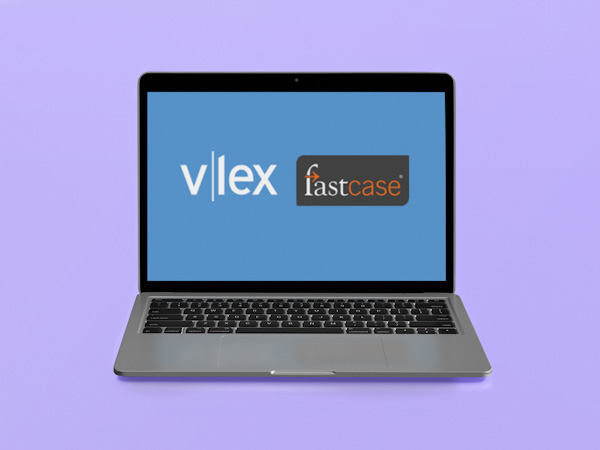Merger creates 'ultimate training data set' for legal AI, Fastcase and vLex say

Image courtesy of Fastcase.
Legal technology companies vLex and Fastcase say their newly announced merger will hasten the development of legal artificial intelligence tools through a global law library that draws on more than 1 billion legal documents.
The merger into a new business called the vLex Group was announced April 4. Combining the subscriber bases and data sets of the two companies, the new law library draws on data from more than 100 countries and includes judicial opinions, statutes, regulations, court rules, docket sheets, pleadings, notions, treatises and legal articles, according to an April 4 news release.
Ed Walters, CEO of Fastcase, said in prepared remarks the global law library creates the “ultimate training data set for legal AI,” while Lluís Faus, CEO of vLex, noted a growing demand for AI tools among lawyers.
“Bringing these two highly successful businesses together will help democratize the law for legal professionals worldwide through a dynamic and robust platform that improves legal research accuracy, efficiency, and affordability,” Faus said in prepared remarks.
Oakley Capital and Bain Capital Credit, part of private investment company Bain Capital, invested in the merger for an undisclosed amount. The companies say the investment will fast-track the vLex Group’s legal AI lab, “which develops AI tools that streamline research, tracking, writing and filing documents for the legal industry.”
According to the news release, the vLex Group’s products will keep the name vLex in global markets and Fastcase in the United States, and the new business will be headquartered in Washington, D.C.; Miami; and Barcelona, Spain. The new company says it will have a wide reach, with 1.1 million subscribers.
The merger comes as ChatGPT, the generative AI platform created by OpenAI, has taken the world by storm. Other tech companies have released platforms to compete with the software, including Google’s Bard.
Some in the legal profession have already embraced the new technology. In February, international law firm Allen & Overy announced that lawyers in its London office are using a GPT-based platform called Harvey for legal work.
In an interview with the ABA Journal, Walters says companies will now be able to build large language models “with the biggest data corpus ever assembled for law.”
“Right now, most of these large language models are trained from data on the World Wide Web, which is great,” Walters says. “But if you want to have a very effective large language model for law, you have to train it on the law.”
Walters says the vLex Group will use the data set from the global law library to develop and create its products, but that users could also use it to power their AI tools.
Walters says both companies have previously used legal AI in their products. VLex built an AI legal research assistant called Vincent and an internal AI tool called Iceberg. Meanwhile, Fastcase has integrated GPT-based technology into a product called Docket Alarm.
Write a letter to the editor, share a story tip or update, or report an error.



